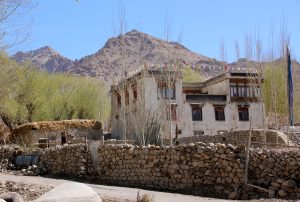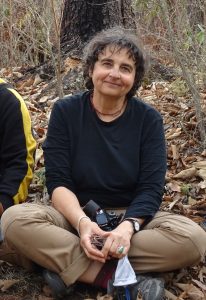The House: Mirror of a society and its changes
 Katedra Etnologii i Antropologii Kulturowej UMK w Toruniu (Instytut Nauk o Kulturze) zaprasza na wykład: Pascale Dollfus (Centre National de la Recherche Scientifique/French National Centre for Scientific Research; Université Paris Nanterre), “The House: Mirror of a society and its changes“, który odbędzie się dnia 24 października 2023 r. (wtorek), godz. 13:15 -14:45, w Collegium Humanisticum, w sali AB.0.09 (ul. Władysława Bojarskiego 1).
Katedra Etnologii i Antropologii Kulturowej UMK w Toruniu (Instytut Nauk o Kulturze) zaprasza na wykład: Pascale Dollfus (Centre National de la Recherche Scientifique/French National Centre for Scientific Research; Université Paris Nanterre), “The House: Mirror of a society and its changes“, który odbędzie się dnia 24 października 2023 r. (wtorek), godz. 13:15 -14:45, w Collegium Humanisticum, w sali AB.0.09 (ul. Władysława Bojarskiego 1).
Our Honorable Guest is going to speak about the Ladakhi society. Ladakh, a territory situated between the Great Himalayas and the Karakoram ranges – part of Indian Western Himalayas, until recently was an administrative district of Jammu & Kashmir State. Since mid-2019 holds Union Territory status.
The richly illustrated Presentation is based on Author’s own observations made between 1978 and 2023. Shows how the ‘house’ enables us to study the profound changes that have taken place there over the last few decades, in economic, social, cultural and religious terms. Both a whole and a part of a single socio-religious system encompassing lifestyle, beliefs, settlement patterns and landscape, the ‘house’ is a mean to express an individual and group identity.

Pascale Dollfus is a French researcher, a permanent member at the French National Centre for Scientific Research (CNRS, section 38: Anthropology). A social anthropologist by training (PhD Paris X – Nanterre Univ. 1987), she has carried out extended fieldworks since 1980 in the western Indian Himalayas, in Ladakh, with sedentary farmers and nomadic pastoralists, in Spiti, particularly in the Pin valley, working with mediums and other religious specialists, and to a lesser extent in Kinnaur. Since 2010 she has been researching the Shertukpens, a small Tibeto-Burman-speaking population in West-Kameng district (Arunachal Pradesh), in North-East India, at the opposite end of the Himalayan range. Her main topics are: kinship and social organization, local religion and its religious specialists, collective rituals and festivals. She has penned 6 books, 4 edited volumes or journals, and some 70 articles and book chapters.




